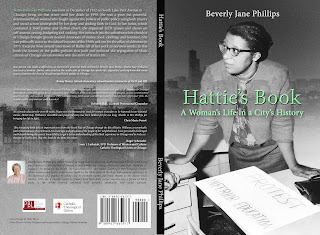And Condors Danced by Zilpha Keatley Snyder
So funny—odd, not
ha ha—how often what one read intersects so closely with something in life.
Just this morning I was talking with my friend Miriam before we started to work
about theology and religious ethics, one of our usual topics, and we were
talking about imagination and joy and how some Christians suppress joy and
enter into such self-denial that they cannot have any fun. I think we had
started this conversation by talking about carols, another topic of interest to
both of us. And then we were talking about festivals, church and pagan. And so
moved on to the kinds of things people did to celebrate. All this discussion
was in the context of the dissension in Christianity between those who believe
that God made us to be joyful versus the ones who believe they will have to “put
down the cross of self-denial” as the “Poor Wayfaring Stranger” remarks in his
last verse.
 Anyway, all of this
is to say that I thoroughly found And
Condors Danced by Zilpha Keatley Snyder (my 1987 book for A Century of Books project) to be absolutely delightful.
Chiefly this is due to the ruminations of the young protagonist in the
Mehitabel Carlton Hartwick, known as Carly. Carly was my kind of young heroine.
Feisty and spunky, thoughtful and smart, full of love.
Anyway, all of this
is to say that I thoroughly found And
Condors Danced by Zilpha Keatley Snyder (my 1987 book for A Century of Books project) to be absolutely delightful.
Chiefly this is due to the ruminations of the young protagonist in the
Mehitabel Carlton Hartwick, known as Carly. Carly was my kind of young heroine.
Feisty and spunky, thoughtful and smart, full of love.
So the comment that
came into play (in the discussion Miriam and I were having) was one of her
thoughts about the Fourth of July celebration in Santa Luisa, California, where
she and her family lived. She liked the Fourth of July picnic best of all
social activities because it was for everyone. Celebrations lasted all through
the day and at night there was more music, the kind that people dance to. She
noticed that
some people danced, like Catholics and free-thinkers, not to mention a few of the more worldly Presbyterians and people like Henrietta Spotsworth, who was a fallen-away Baptist.
Not to generalize
too much, but for me that pretty much sums up the kind of difference between
joyful Christians and those who will have to put down their cross of
self-denial at the end of life. Carly has another little foray into theology
when a traveling preacher comes from the south. He had Carly’s hopes high that
he was going to talk about sin as she found it was very hard to get any real
information about it. Carly thinks,
it wasn’t at all hard, of course, to get information about the ordinary, everyday sins. But it was obvious that God wouldn’t have gone to all the trouble to create hell just to pay people back for things like disobedience and immodesty. So it was pretty certain there were a lot of much more interesting sins that no one would talk about, at least not to Carly.
But the preacher
never got to that. He moved onto the end of the world stuff which frightened
Carly and the children so desperately that at the end of the day Auntie M and
Woo Ying had to calm Carly down and quell her imagination. Let’s just say that
Carly had an extremely well-developed imagination running toward the dramatic.
Auntie M. and Woo Ying are the ones who basically raised Carly and who she lived with during this story. Her mother had been ill since before Carly was born and this is the part of the story that is very sensitively written about from the point of view of Carly. She felt her mother didn’t ever pay attention to her and she didn't know why she was being made to move back with Auntie M (which she really didn’t mind as she was completely cosseted there). Carly finally gets the answers to her questions about her mother’s behavior and is able to become the happy-go-lucky child she was before, having theatrics, cogitating on interesting thoughts, exploring the wild countryside. I loved this book and highly recommend it. Snyder won three Newbery’s so you know she must be good! I highly recommend her The Egypt Game as well.



Comments
Post a Comment